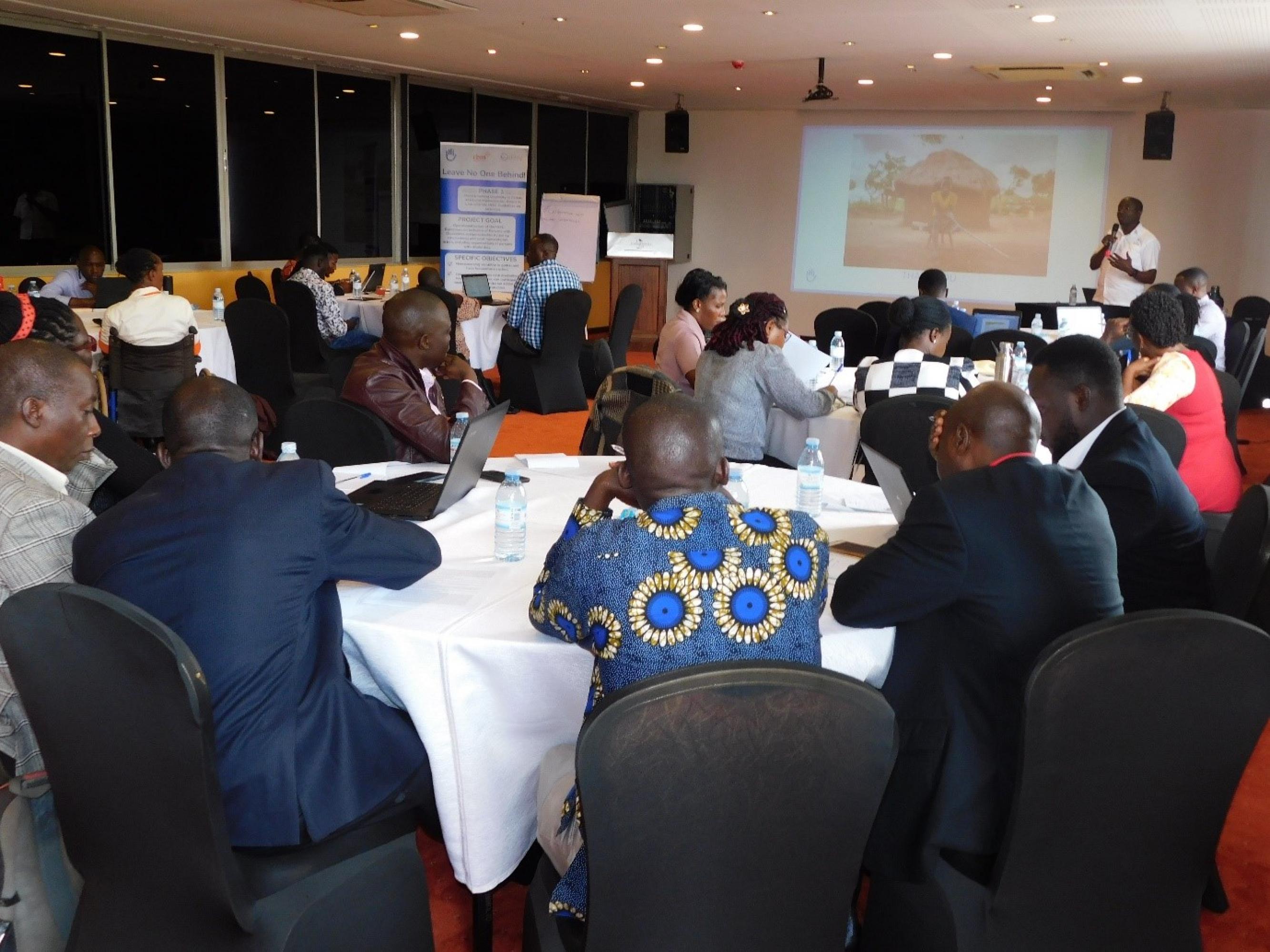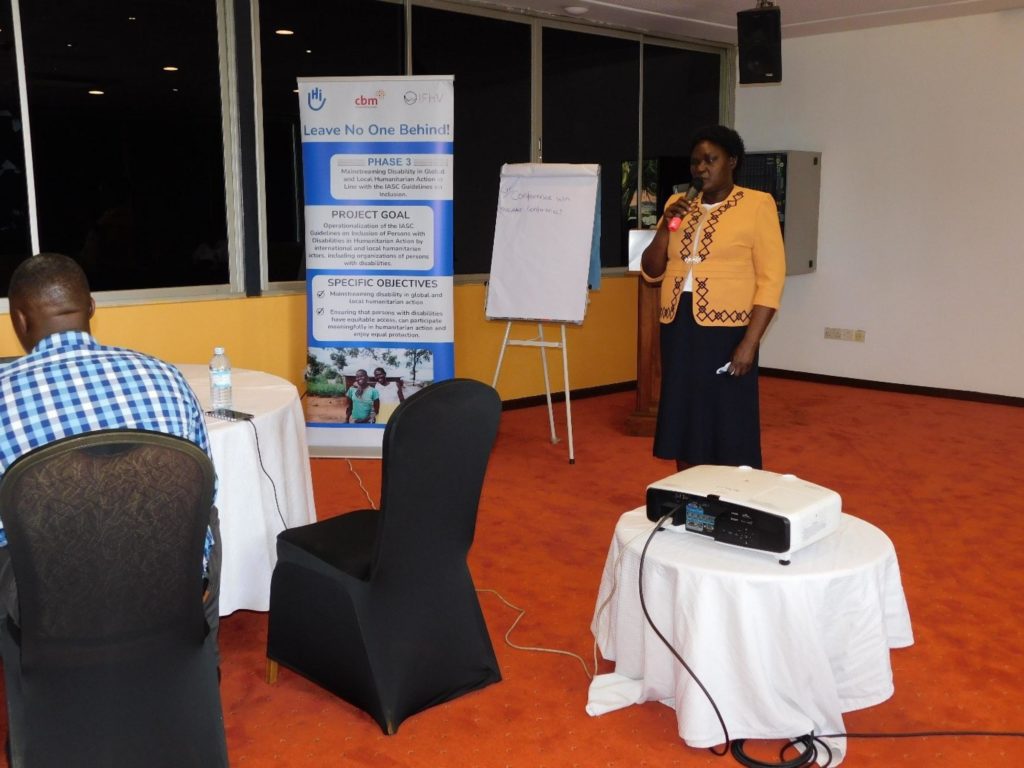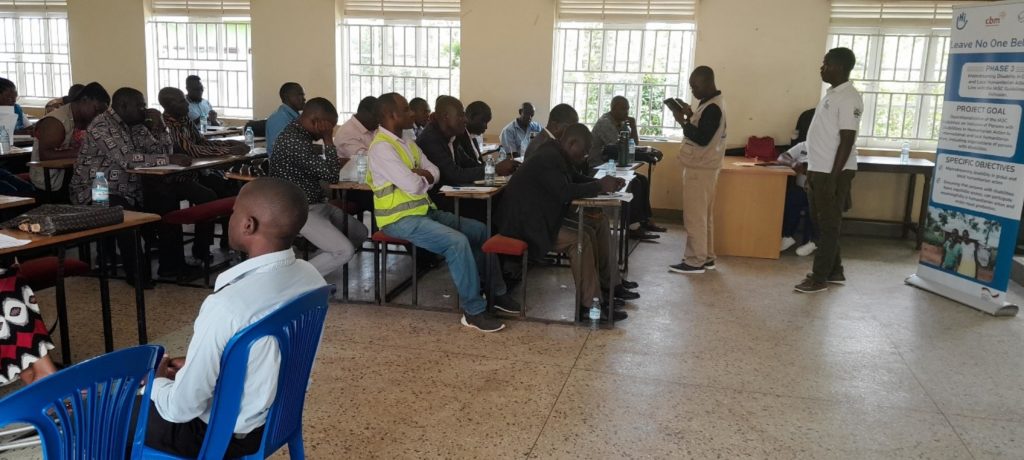Unveiling “Phase 3 – Leave no one behind!” to International and Local Humanitarian Actors in Kyaka II, Kyegegwa and Kampala in Uganda
Category
IASC-Guidelines Pilot Countries
© HI
In Uganda, persons with disabilities are among the most excluded from humanitarian assistance. The stigmatisation in the community, combined with the limited capacity of humanitarian actors to include persons with disabilities in programming and coordination, exacerbates vulnerability and further exclusion.
To foster disability-inclusion in humanitarian action through localizing the Inter-Agency Standing Committee (IASC) Guidelines on inclusion of persons with disabilities in humanitarian action, the HI’s Uganda team launched the “Phase 3 – Leave no one behind!” project in the field and at the national level.
The objectives of the kick-off workshops were three-fold: to enhance partner buy-in into the project implementation by the international and local humanitarian actors; to provide a platform for humanitarian partners, including representatives from Organisations of Persons with Disabilities (OPDs), to exchange and get to know each other about their work; and to identify the current gaps and/or needs among humanitarian actors and identifying entry points for them to engage and benefit from the project.
The workshops also intended to increase the involvement of different international and local humanitarian actors and/or stakeholders in the operationalisation of IASC Guidelines by mainstreaming disability in their activities within the protection sector in humanitarian action.
Project launch in the field and at the national level
The kick-off workshops were held at two different dates and in accessible locations, using English, Kiswahili and Uganda Sign language.
In Kyaka II settlement, Kyegegwa district, the field workshop took place on the 12th April, 2023 and was attended by field-level officers involved in provision of services to different persons within the refugee settlement including persons with disabilities. The workshop was attended by fifty-two participants, including twelve persons with disabilities and representatives from OPDs.
The national level kick-off workshop was organized on 4 May, 2023 in Kampala. It was attended by thirty-six participants including persons with disabilities, OPDs and representatives from different ministries, UN organizations and national and international NGO’s.

Bringing humanitarian actors on the same table to discuss on disability-inclusion
The office of the Prime Minister and UNHCR gave opening and closing remarks in both workshops. As lead partners in refugee affairs in Uganda, the two entities emphasized the collaboration and meaningful engagement of the sector partners in the project. They encouraged stakeholders to make use of the available opportunity to strengthen their capacity in disability mainstreaming in order to achieve inclusive humanitarian response. They also applauded HI for the project to strengthen the capacity of the different humanitarian actors in mainstreaming disability in their work.
Overall, the kick-off workshop objectives were achieved as echoed by one of the participants in the Kampala kick-off. This is what a representative from Uganda National Action on Physical Disability had to say:
“I have been hearing about UNHCR and refugees but I don’t know what they have done around disability. I don’t see any data for persons with disabilities. What do they do exactly? We can work with them to tackle some of these things. I am happy that this platform has brought us on the same table….”
Interestingly, the partners are looking forward to the next steps, namely Disability Reference Group (DRG) module training and the Review, Adapt and Action Learning (RAAL) workshop. A quote from one of the participants illustrates the demand. A representative from TPO Uganda noted:
“Give us those forms and we can even fill now so that we participate in those activities because I think they are overdue. …. Share as soon as possible because we are ready to participate…”
As part of the “Phase 3 – Leave no one behind!” project, we are prepared to support the partners in making humanitarian action disability inclusive.

Photo Copyrights: HI
Text by: Oscar Walukhu-Wakooli